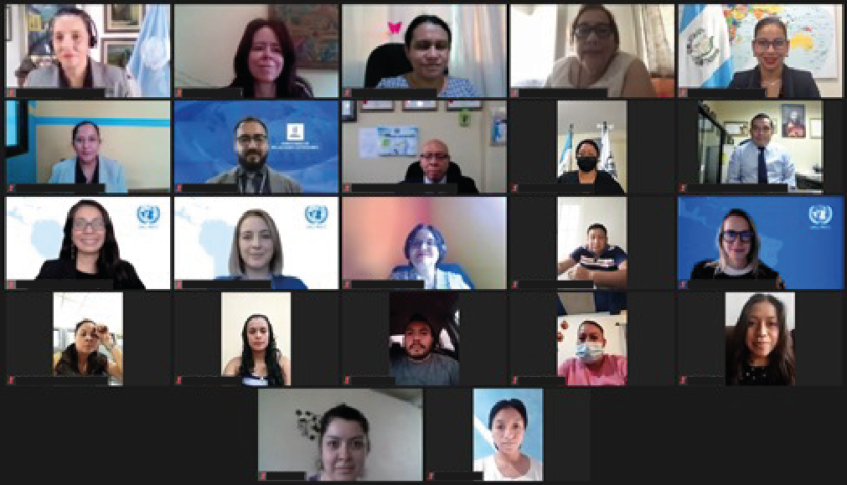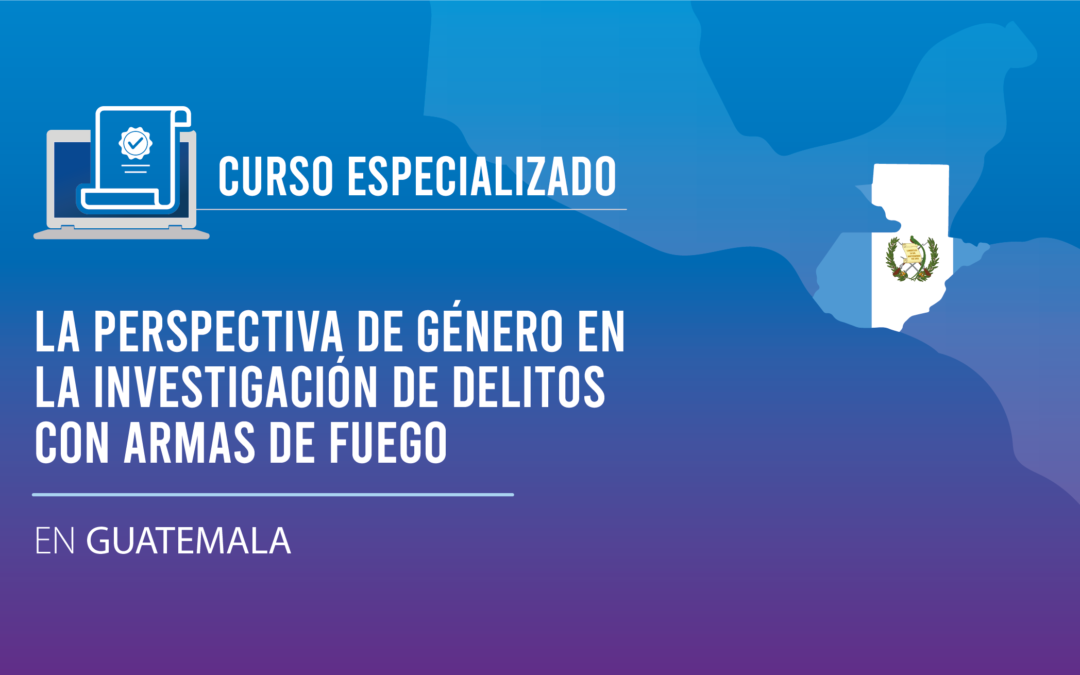From 12-23 July 2021, the United Nations Regional Centre for Peace, Disarmament and Development in Latin America and the Caribbean (UNLIREC), in collaboration with the Guatemalan Ministry of Foreign Affairs, delivered a Specialised course on firearms investigations from a gender perspective (FIGP) to close to 30 officials.
Thanks to the cooperation of the Ministry of the Interior, the Public Prosecutor’s Office and the Judicial Studies School, an interinstitutional group was formed, consisting of officials from the women’s office and the office against femicide; judges from the femicide court, violence against women, and sexual violence; investigators from the National Police, specifically from the femicide department, Department for Crimes against Life, and the division specialising in criminal investigation.
The course, as well as helping to sensitize participants on the importance of incorporating a gender perspective into tackling crimes committed with firearms, strengthens the technical knowledge of the scientific method of criminal investigation and interinstitutional cooperation in these fields.

The diverse nature of the group emphasized one of FIGP’s objectives: strengthening staff coordination and cooperation to optimize individual and collective efforts to tackle crimes related to violence against women and firearms.
The course was carried out virtually and separated into six interactive conferences, in which participants could present their experiences and converse with UNLIREC instructors. Theoretical and technical aspects of criminal investigation were discussed in detail, as well as the way in which the gender perspective as a method of analysis helps us reach conclusions free from stereotypes, grounded in objective technical or scientific studies that are based on relevant theory. Case studies were conducted to highlight the absence of a gender perspective, which violates the rights of victims and their families.

During the training, emphasis was placed on the use of firearms to commit different types of violence against women, not only as a murder weapon, but also as a means to threaten, intimidate and coerce. The training stressed the importance of the correct management of a crime scene and of firearms and ammunition as physical evidence in investigations from a gender perspective. The course shared good practices with participants and urged them to strengthen interaction and cooperation across the different stages of judicial investigation, to optimize individual and collective efforts to tackle crimes related to firearms with special attention given to cases of gender-based violence. This helps to reduce levels of impunity and improves justice and security institutions.
This course forms part of the ‘Support for the integration of the gender perspective in policies, programmes and action in the fight against trafficking and the misuse of small arms’ project, funded by the European Union.

